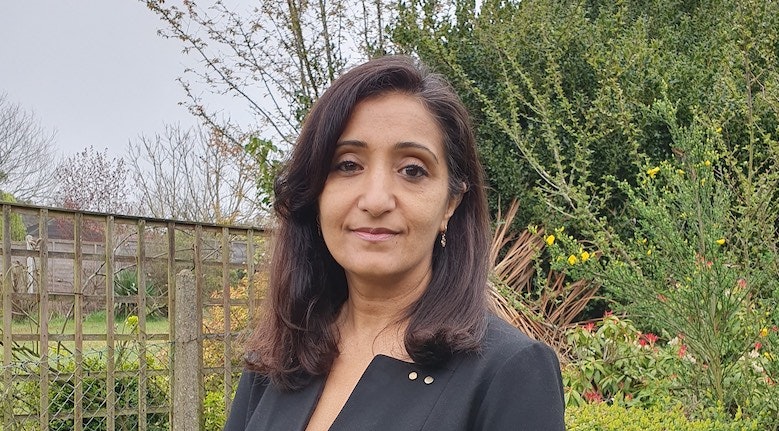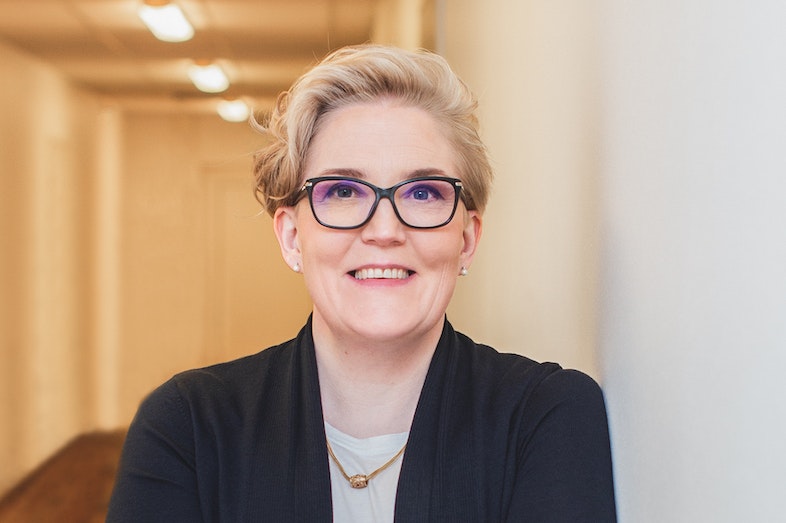There’s the expectation that an investor putting money into your startup will put your company under the microscope during the due diligence process. But checking for red flags and finding as much information as you can is a two-way street.
Whereas putting money into a duff company can be disastrous, bringing the wrong investor on board can also be the death knell for a fledgling company. That’s why you should always be doing due diligence on the people with cash wanting to back your startup. Here’s how to get it right.
What is due diligence and when should you do it?
“Due diligence is like doing your googling before dating: making sure there’s not any massive skeletons in the closet,” chuckles Astrid Gyllenkrok Kristensen, cofounder and CEO of Swedish femtech startup LEIA, which raised a €1.4m seed round in January this year.

It encompasses all the research you should do into potential investors before you take their money. It should happen as soon as possible, Kristensen says, because while you're raising a round you lack time — doing due diligence ensures you don’t waste meeting time with an investor that’s showing a lot of red flags or simply isn’t a good fit.
Her approach is twofold:
- A 30-minute intro meeting with an associate/junior to get a basic understanding of the firm’s experience in the sector, term sheets and commitments, follow-on strategies (one-off investment or evergreen partnership) and why they’re interested in investing;
- Reach out to portfolio companies to understand their experience of working with the investor.
Why is investor due diligence important?
One reason it’s crucial to check your potential investor’s history and credentials is to avoid conflicts of interest — at this stage or further down the line.
“You’ll want to make sure that the investor is not involved in any business that is competitive with the business of your company,” says Jas Bhogal, a corporate partner at Harper James Solicitors. “Further, when institutional investors and VCs invest, they often carry out some due diligence on the other company and its current shareholders to ensure there are no individuals involved in the company who will cause any concern to them.”
For Monika Liikamaa, co-CEO and founder of Finnish fintech Enfuce, it was important to find investors that aligned with what the company wanted to achieve. And as a financial institution, the investors also needed to be approved by their financial supervisors.
“It’s always good to know who you’re talking to, what type of investments they’re doing and how your strategy aligns,” she says. “It’s important that they’re fit for purpose and have a credible background.”
Angels vs VCs
In the early stages of raising money it’s likely you’ll have angel investors interested in joining your cap table.
“A lot of angel investors are more passive in their approach to investment,” says Bhogal. “Their primary focus is getting a return on their investment and they don’t want to be involved in the management or running of the company.”

Angels can offer startups specific benefits, such as access to their sector knowledge and contacts — they might also introduce companies to institutional VCs for later rounds. And as it’s chiefly personal funds being funnelled into the company, angels are likely to have a genuine interest or belief in the product.
Bhogal advises identifying the following from the outset:
- Who the investor is (confirm via photo ID and proof of address);
- That they can self-certify as sophisticated investors or high-net worth individuals;
- That the investor is investing on their own behalf.
To determine more about their experience and previous investments, ask questions like:
- What attracted you to my company?
- What kinds of previous investments have you made?
- What’s the last company you backed, and why?
- What are your success criteria for an exit?
- Are you a startup operator with experience in my sector or not?
Questions to ask a VC
When it comes to raising from VCs you need to dig into similar questions, and identify how they’re going to inject growth into your company beyond just cash.
“Our last round was pre-seed so for us it was really important to understand their knowledge and their skill sets in our segment and their market presence,” says Kristensen. “How can they accelerate your journey, either in know-how or entering a new market?”
Standard questions you might ask a VC, says Liikamaa, include:
- Who’s the LP behind the fund?
- What’s their track record? How long have they been in business?
- Why do they want to put money in your company?
- What’s their expected return?
- What’s the value they will bring?
“VCs are often more active investors and require the benefit of certain rights in relation to the business of the company they invest in, for example board seats and information rights,” Bhogal says.
“You will want to consider carefully what level of control you are prepared to give away to the incoming investors and what impact this will have on the founders being able to run the company as they want to.”
Due diligence at seed vs Series A, B, C
“The key thing when you’re early on is you need someone who's hands-on-deck,” says Kristensen. “Whereas when you’re in Series A, you usually have the resources but need someone who can really level up scale and fundraising.”
Liikamaa says it’s important to understand your stage. At pre-seed or seed it’s likely an angel won’t bring much money but they could bring added-value, she says. They might also have a shorter horizon on when they want to exit.
“A more mature-growth VC or private equity is totally different: their horizon, their expectation of returns.”

So it’s essential to understand the skills you have within the company and what’s missing, and choose investor profiles based on that. “What are the critical roles that we’re lacking in order to pivot to the next stage?” Liikamaa asks. “What’s the game plan? What will we use the money for?”
Enfuce raised a €45m Series C in December 2021. Liikamaa says the focus was on the company’s legal and financial structure, and scaling that to strengthen its position in Europe and get ready for its next round.
But whatever the stage, it all comes down to chemistry, she says.“One part is money. But if they’re going to have a board seat, you want to understand that person. It’s a relationship. Everyone has the same incentive: to get the company to succeed. But they will have different perspectives. So be mindful of that and do your homework on the person who will get a board seat.”
Finding the right investor for your company’s needs
For LEIA’s Kristensen, it was important to find an investor who would be more than a cash cow. Someone who understood the business and was passionate about it. “As a pre-seed company you are always low on resources,” she says. “You don’t want lots of people sitting telling you advice, you need hands-on-deck help.”
She chose an operational VC based on that thinking: People Ventures, a digital health VC in Denmark. Kristensen did her homework, spoke to every company in the portfolio and heard good things about the level of engagement and support.
At People Ventures, a member of its team of venture builders is assigned to each company based on their needs. The individual might join weekly team meetings, workshops or strategy sessions. Kristensen’s works closely with the sales team, does presentations, helps with pricing strategies and comes to Sweden once or twice a month for workshops. “He adds a lot of value,” she says. “It’s like having another person on the team.”
Liikamaa says that for Enfuce, growing beyond Series C meant getting help to find a CFO who could take the company to IPO. “And here we’ve been really happy with our investor Vitruvian Partners, because they helped us find what good looks like for our purpose.”
Investors can “make or break you early on”, says Kristensen. “I know startups that have crumbled because they brought the wrong investor on.”
Early stage carries the biggest risk, she adds, because it can be scary raising your first round and you’ve often not validated a lot of things. “You’re much more inclined to take anything,” she says.
“The key takeaway is don’t think short-term, think long-term, because it does have a massive effect on the success of your company who your investors are… And always listen to your gut feeling.”
Due diligence red flags
Female health, Kristensen says, can be the victim of box ticking. “Get a clear idea early on if this is actually something [investors] are interested in, or just a box to tick on their portfolio,” she advises. “Femtech is quite popular right now, and we get lots of investors reaching out as they’ve been told to get a female founder or femtech company in.” So it’s important to get a good understanding of why an investor is interested and what made them reach out.
Questions to gauge whether there’s authentic interest:
- What other healthtech companies do you have in your portfolio?
- What’s your experience working within the health segment?
- What are your thoughts on the female health market?
- What are some of the key challenges and opportunities that you see?
“You can very quickly understand if they have any understanding of the segment at all,” says Kristensen. “You don’t even have to go that deep.”
She also warns that there are VCs introducing "dirty term sheets" during the downturn. She’s seen term sheets “where you can tell they’re not looking out for the company, they just want to grab as much as possible when people are desperate.”
Bhugal advises scrutinising the rights incoming investors are seeking and how that will impact the running of the business.
“VCs often invest for preference shares, which means you might need to create a new class of share with preferential rights, for example liquidation preference. You should consider how that works and what impact it will have in the event of a liquidation or sale.
“VCs [also] often require that the shares held by the founders are subject to vesting over a period of time. These provisions are often the most negotiated in a term sheet, as at worst-case scenario they can result in the founder losing their shares in the company,” says Bhugal.
“Be sure as a founder that you understand liquidation preferences and the different kinds of rights [investors] are trying to push,” says Liikamaa. “And understand when shit hits the fan what would that actually mean? As a founder, you want to hold on to controlling the company’s future as long as possible.”
Liikamaa recommends finding an advisor who doesn’t have a stake in the company (now or in the future) but understands the “VC animal and can help you translate whatever they’re requesting”.



